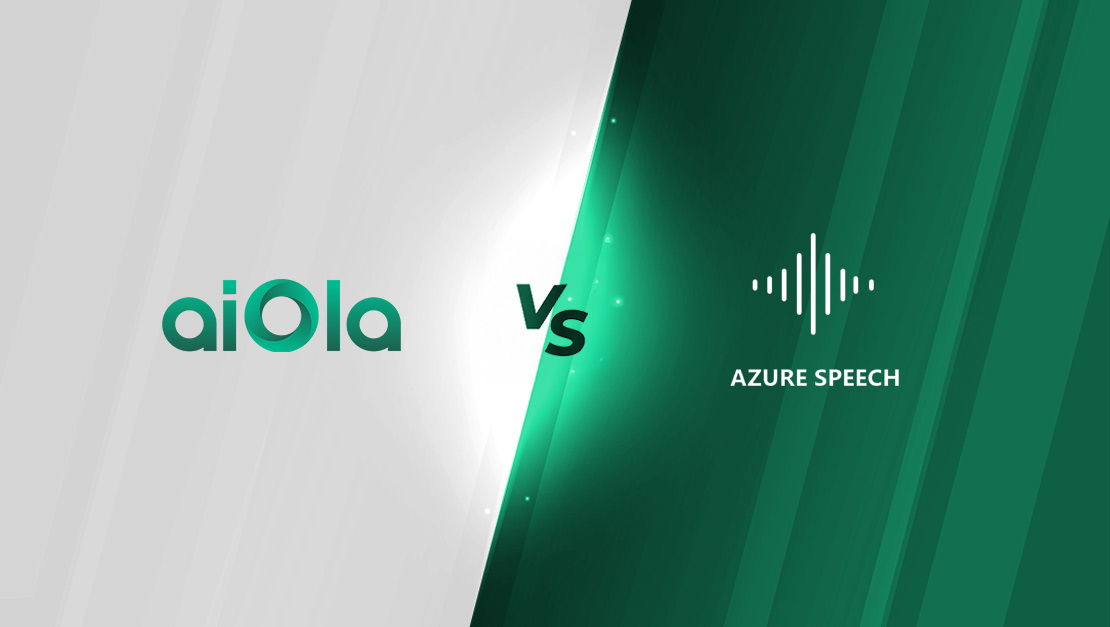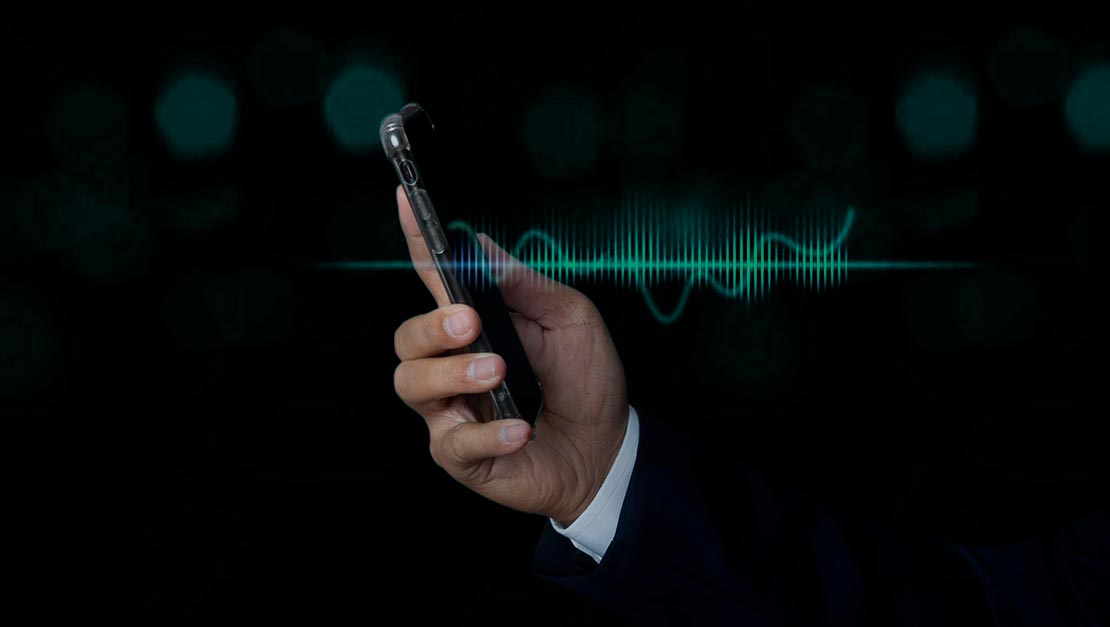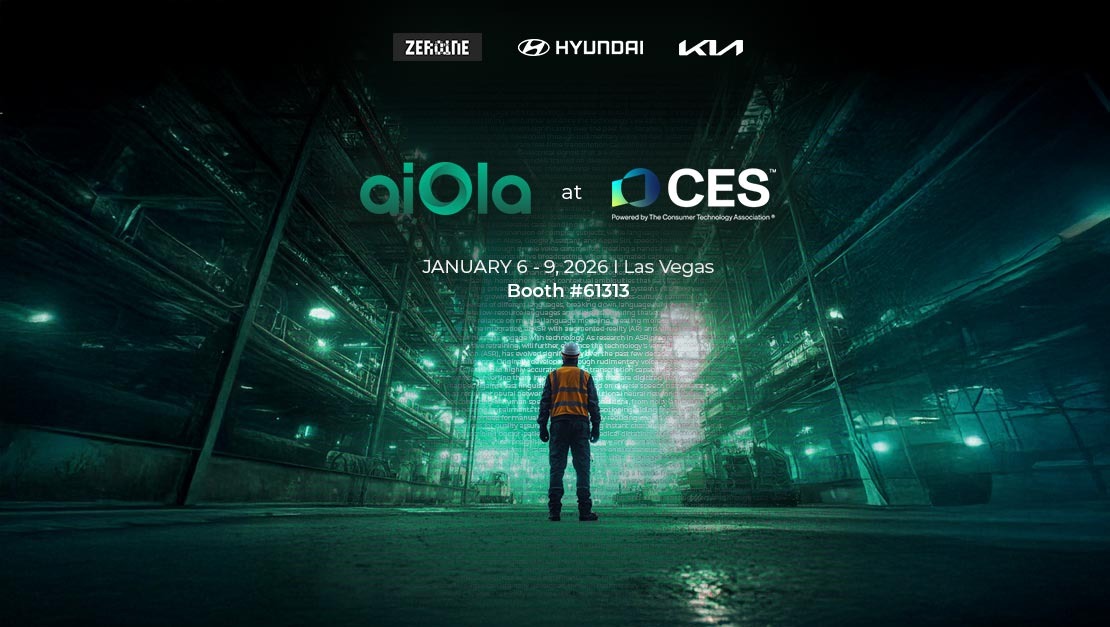Automatic Speech Recognition (ASR) is now a cornerstone of digital enterprise systems—from live meeting transcription to voice analytics, customer support, and compliance monitoring. But choosing the right ASR platform requires more than just “best baseline accuracy.”
Factors such as handling real-world noise, parsing industry-specific terms, and integrating seamlessly into existing workflows are essential.
In this comparison, we look closely at aiOla’s Jargonic V2 and Azure AI Speech to help you determine which platform aligns best with your enterprise needs. Let’s evaluate them across multiple speech scenarios, real-world datasets, integration ease, and security standards.
Understanding the Platforms aiOla vs. Azure AI Speech
Let’s take a look at aiOla vs. Azure AI Speech:
aiOla
aiOla is purpose-built for enterprise-grade spoken data intelligence. Its flagship model, Jargonic V2, is engineered to thrive in the most challenging audio environments—factory floors, noisy logistics hubs, crowded healthcare facilities, and more. Unlike generic ASR systems, aiOla doesn’t just transcribe—it transforms.
The platform automatically recognizes complex, industry-specific jargon without requiring manual tuning or retraining, making it uniquely equipped for technical fields like pharmaceuticals, manufacturing, aviation, and finance. It excels in multi-speaker conversations, even when speech overlaps, accents vary, or ambient noise is high.
More than a transcription tool, aiOla converts unstructured spoken language into structured data that can trigger alerts, feed into analytics pipelines, or integrate directly into operational workflows. Its deep focus on enterprise use cases sets it apart in terms of performance, functionality, and flexibility.
Azure AI Speech
Azure AI Speech, part of Microsoft’s broader Azure Cognitive Services suite, is a versatile and developer-friendly platform for general-purpose speech-to-text. It offers solid support for a wide range of languages and integrates easily with Microsoft’s other cloud offerings, such as Azure AI, Power BI, and Dynamics 365.
Azure AI Speech is particularly effective in controlled environments like call centers, mobile apps, and virtual meetings, where it provides captioning, translation, and transcription services.
It supports custom models, voice synthesis, and speaker diarization—ideal for developers building consumer applications or enhancing user accessibility. While it can be adapted for enterprise scenarios, Azure’s strength lies in its broad ecosystem rather than specialized transcription performance.
Use Cases: Consumer vs. Enterprise Focus
Azure AI Speech caters well to consumer-relative scenarios. It is often deployed for accessibility—providing closed captioning in streaming services or generating transcripts within Microsoft Teams, Dynamics, and Power Platform. These environments assume clean audio and less urgent demands for domain-specific terms, making Azure AI Speech a reliable solution.
By contrast, aiOla was built for environments where audio isn’t controlled. Whether it’s legacy manufacturing facilities, multilingual team meetings, noisy warehouses, or mission-critical voice data, aiOla meets these demands head-on. Its zero-shot learning capability to handle unique terminology instantly makes it a clear leader in enterprise applications.
Speech Recognition Performance
Benchmark evaluations highlight sharp performance differences. In English datasets:
- AMI Meeting Corpus, involving overlapping conversation and casual dialogue, has a Word Error Rate (WER) of just 15.1% for aiOla, while Azure averages closer to 22–25%.
- On LibriSpeech Clean, aiOla hits 1.8% WER against Azure’s approximate 3.5%.
- In CommonVoice V13, which covers global accents and languages, aiOla scores around 5.2% WER, whereas Azure falls between 7% and 9%.
These results illustrate aiOla’s consistent lead in both controlled and noisy speech conditions.
Keyword Spotting & Jargon Accuracy
Beyond transcript accuracy, the ability to detect domain-specific terms is crucial. aiOla outperforms Azure in benchmark tests like Earnings-22 and specialized CommonVoice keyword versions. Offering out-of-the-box recognition of SKUs, chemical names, financial acronyms, and technical terminology, aiOla’s zero-shot model bypasses the need for custom vocab training that Azure usually requires.
Integration & API Flexibility
Both platforms offer REST APIs and SDKs. Azure’s strength lies in its tight integration across the Microsoft stack—including Azure Functions, Logic Apps, and Teams. aiOla, however, prioritizes enterprise workflows by delivering structured data with metadata, real-time alerts, and seamless handoffs to analytics platforms—all without requiring domain-specific customization. That makes it easier to operationalize spoken data quickly.
Language and Multilingual Capabilities
Supporting widespread language adoption is essential for global enterprises. aiOla supports over 120 languages and dialects, with benchmarked performance across accents and regions. Azure also offers extensive language coverage but tends to see performance dips in heavily accented or noisy dialect-heavy environments, while aiOla continues to maintain low WERs in those challenging scenarios.
Real-World Noise Handling
Azure has been trained largely on studio-quality or synthetic noise conditions, which makes it robust in clean or mildly noisy contexts. However, in environments like factory floors, conference call overlaps, or logistics operations, aiOla maintains high fidelity. Its advanced noise filtering, multi-microphone support, and real-world model training give it a clear advantage.
Accuracy, Efficiency, & Workflow Readiness
In production, accuracy isn’t just about error rates—it’s about speed, reliability, and output usability. aiOla reduces time-to-insights by delivering not just transcription, but structured results that integrate directly into BI platforms or AI pipelines. Azure provides powerful tools but typically requires longer setup and coding to structure audio data for enterprise-grade analytics.
Data Privacy & Compliance
For regulated industries, privacy is non-negotiable. aiOla includes built-in Named Entity Recognition (NER) to automatically mask sensitive data like names, social security numbers, or health information. It’s designed for compliance with GDPR, HIPAA, and SOC 2. Azure, while secure, does not automatically include PII masking—you’ll need to add your own processing.
Which Solution is Right for Your Enterprise? aiOla vs. Azure AI Speech
Choosing between aiOla and Azure AI Speech depends on the complexity of your use case, the environments you operate in, and the level of customization and accuracy your business demands.
While Azure AI Speech is a capable general-purpose ASR tool, aiOla’s purpose-built approach offers more advanced functionality for enterprises that require precision in noisy, jargon-heavy, and real-world scenarios.
Here’s how the two compare across key dimensions:
- Accuracy in Noisy Environments:
- aiOla: Best-in-class Word Error Rates (WER) in overlapping, accented, and spontaneous speech conditions.
- Azure AI: Performs well in clean environments but struggles more with background noise and casual speech.
- Jargon Recognition:
- aiOla: Zero-shot recognition of industry-specific terms—no manual training or tuning required.
- Azure AI: Supports custom models, but requires manual intervention and training for jargon detection.
- Multilingual Support:
- aiOla: 120+ languages and dialects with high recall rates in global benchmarks.
- Azure AI: Wide language support, though accuracy varies more significantly by language.
- Integration and Workflow Fit:
- aiOla: Seamless API and real-time data structuring into enterprise platforms.
- Azure AI: Tight integration within Microsoft ecosystem, ideal for existing Azure users.
- Enterprise Readiness:
- aiOla: Built-in Named Entity Recognition (NER), data privacy compliance, and real-time alerting.
- Azure AI: Offers enterprise-grade security, but fewer transcription-specific automation features.
For enterprises prioritizing real-time insight, accurate transcription in challenging audio conditions, and zero-setup jargon detection, aiOla is the clear leader.
Final Thoughts on aiOla vs. Azure AI Speech
If your enterprise works with structured audio in clean environments—like standard meetings or captions—and you’re deeply embedded in Microsoft systems, Azure AI Speech offers a capable solution. However, if your organization grapples with noisy environments, overlapping speakers, multilingual demands, and industry-specific terminology, aiOla’s Jargonic V2 provides a uniquely complete package. It achieves unmatched accuracy, delivers structured output, and integrates fast—without retraining.
Want to hear the difference? Book a personalized demo with aiOla today and see how our enterprise-grade ASR transforms real-world audio into actionable insights.













